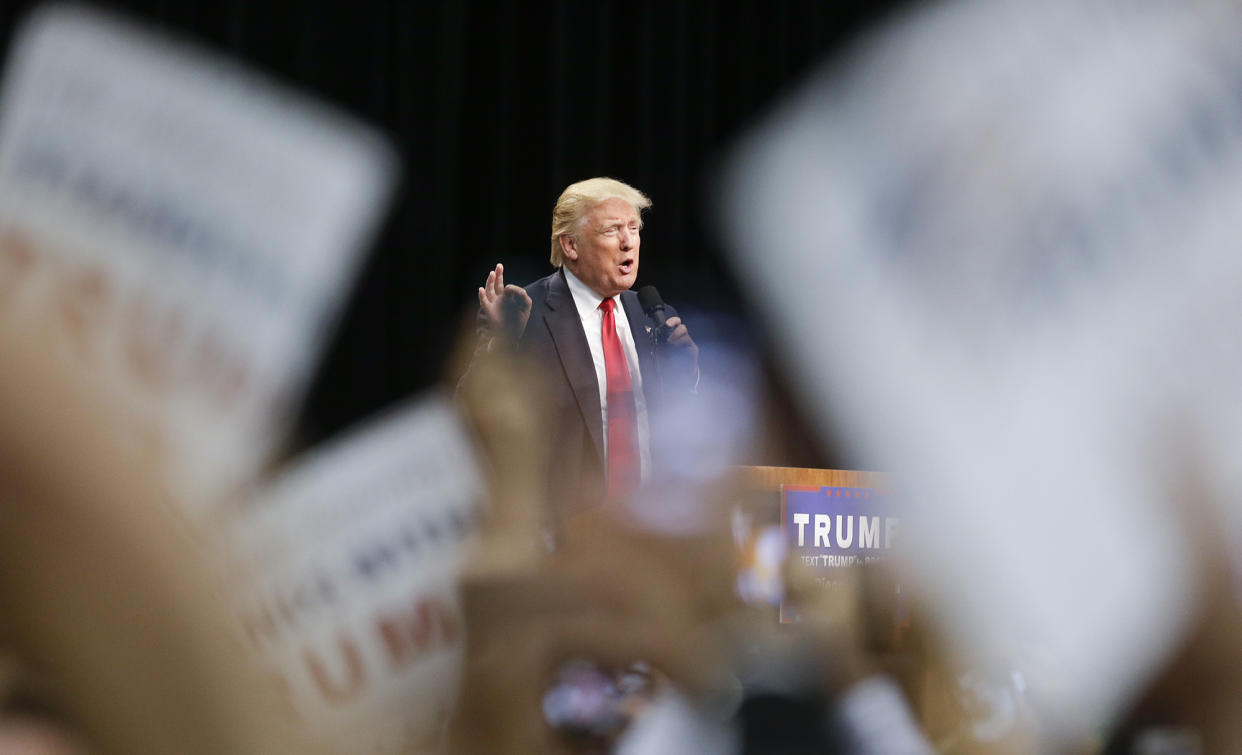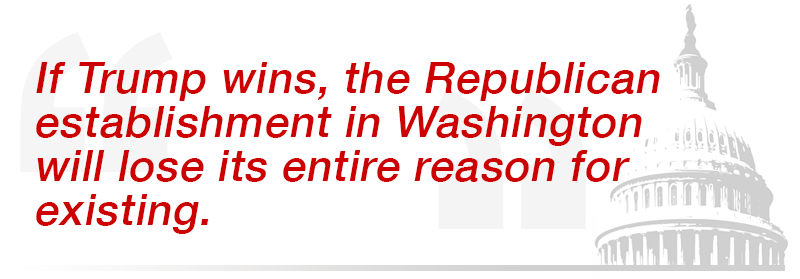What the search for a Trump alternative is really about

In the fall of 2011, when I was working on a long magazine piece about the imperiled Republican establishment, I went over to see Bill Kristol. Here’s what he said about the grassroots fury in his party:
“I get annoyed with all the establishment types here who speak as if they’re supposed to be controlling everything, who sound like they’re annoyed when things happen that they don’t expect. Welcome to the world.”
And here is what Kristol, founder and editor of the Weekly Standard, said in his most recent editorial about our choices in November:
“What is to be done? Resist. Resist the decline of America. Resist an Argentinian future. Resistance can mean a lot of things over the next few years. But in the here and now, resistance means finding a serious and credible independent candidate.”
Should I say it, or should you? Oh, hell, it’s my column.
Welcome to the world, Bill.
Over the holiday weekend, while you were watching video clips of a rampaging gorilla, Kristol was tweeting tantalizing news of his evolving rebellion: “There will be an independent candidate — an impressive one, with a strong team and a real chance.”
Which might have struck me as very consequential news, if it hadn’t sounded so much like something I once read in a fortune cookie. THERE WILL BE AN IMPRESSIVE CANDIDATE WITH A STRONG TEAM AND A REAL CHANCE. YOUR LUCKY NUMBERS ARE 7, 14 and 83.
So who is this mystery candidate? Well, Kristol is still holding out hope for a Mitt Romney or a Jeb Bush, or even a Joe Lieberman, or really anyone else you might actually have heard of.

But if you believe breathless reports by the intrepid team at Bloomberg Politics — or, you know, if you bother to read halfway through Kristol’s editorial, where he basically says it himself — the more likely candidate he has in mind is a guy named David French, who is a constitutional lawyer, author and Iraq War veteran.
To assess the threat this poses to the two-party system in America, let’s first consider the most obvious reasons that this gambit would not, in fact, have any real chance of success — at least if we’re talking about winning, which I don’t really think we are.
For one thing, the logistical hurdles to an independent campaign, no matter who lends his name to it, are probably insurmountable at this point, as deadlines for getting on the ballot in each state start to pile up quickly. If Kristol’s new party (maybe he’ll call it the French Resistance) were to announce itself in, say, a few weeks’ time, it would already be assured of missing out on ballot spots in California, North Carolina and Illinois.
There is, of course, a right-leaning alternative who already has access to ballot lines virtually everywhere, and that’s Gary Johnson, the Libertarian Party nominee. But Republicans consider Johnson something of a kook, partly because as governor of New Mexico he espoused policies like decriminalizing marijuana. Like that could ever go mainstream.
But back to French, who has never run for political office, and who probably can’t book himself on cable shows, since he doesn’t tweet about the ugliness of other candidates’ wives and whatnot.
I spoke to French once several years ago, when he was organizing Evangelicals for Mitt. (It was not a large organization.) He struck me as thoughtful and decent. I liked him.

French also wrote a book with his wife, Nancy, however, in which they described the rules they devised together while he was stationed in Iraq; she wasn’t allowed to have phone conversations with other men, or to have email exchanges with men about politics or any other subject, or to use the kind of social media where a man might contact her.
So, yeah, you can really see how French is well positioned to peel off that large segment of women voters who don’t like Hillary Clinton but who can’t stomach Trump’s blatant sexism.
(Speaking of Trump, in the past week, he’s informed Californians that there’s actually no drought in their state, and he’s insisted that he hid his donations to veterans’ groups because he didn’t want credit. It’s like Trump is working on a reality-show project called “How Gullible Can America Be?,” and he’s determined to find the outer limit.)
But here’s what a campaign by French or some other socially conservative, strong-military Republican might actually achieve: It might siphon just enough votes in just enough states to ensure Clinton a victory. And, truth be told, that’s probably what Kristol and a lot of other Republican insiders are hoping for at this point.
That’s not because they think Clinton will be a good president, or because they think Trump would raze the monuments and suspend habeas corpus, necessarily. It’s because if Trump wins, the Republican establishment in Washington will lose its entire reason for existing.
For more or less 25 years now, governing Republicans like Kristol (who was once chief of staff for Vice President Dan Quayle) have positioned themselves essentially as professional enablers.

For all that time, increasingly furious conservative voters, whipped up by antigovernment rhetoric, have been sending ever more extreme leaders to Washington, where inevitably they meet up against the immovable reality of budgets and bureaucracies.
And the main job of the advisers and lobbyists we loosely refer to as the Republican establishment has been to navigate the divide between these two worlds — to somehow tutor and moderate the elected leaders who arrive in Washington raging against the machine while figuring out how to exploit the grassroots intensity they need for the next election.
The establishment’s main role has been to make governance look like resistance, and vice versa.
Except that Trump really doesn’t seem interested in being tutored or moderated — or not in any way that lasts for longer than the next news cycle. He may not even govern as a conservative.
If Trump somehow wins (and, as I’ve written, I don’t find this so implausible), the whole professional apparatus of the Republican Party will as likely as not become irrelevant, replaced by the geniuses who ran Trump University and the Taj Mahal. Game over.
I don’t doubt for a second that Kristol sees Trump as a genuine threat to the country, self-interest notwithstanding. But I also think he’d rather endure four or even eight years of another Clinton than a nominally Republican White House that has only contempt for the governing class, and he’s not alone.
Kristol told me in 2011 that the turmoil churning inside his party was simply “the price you pay for a certain kind of vitality and vigor.”
Truth is, Trump is more vitality and vigor than Republicans in Washington can stomach.



